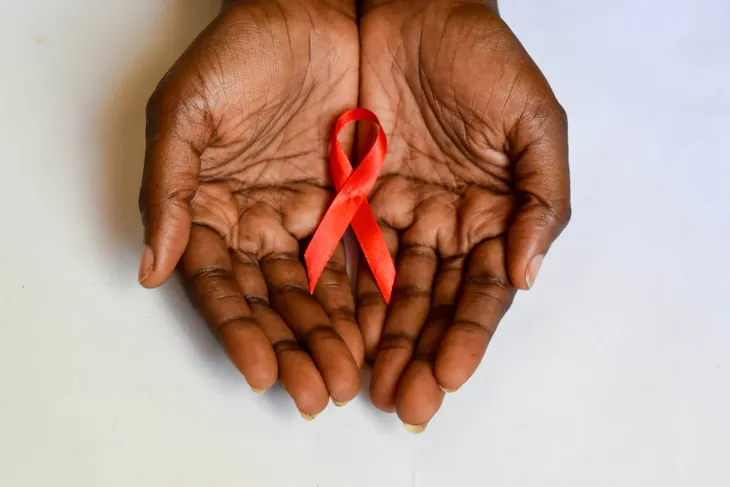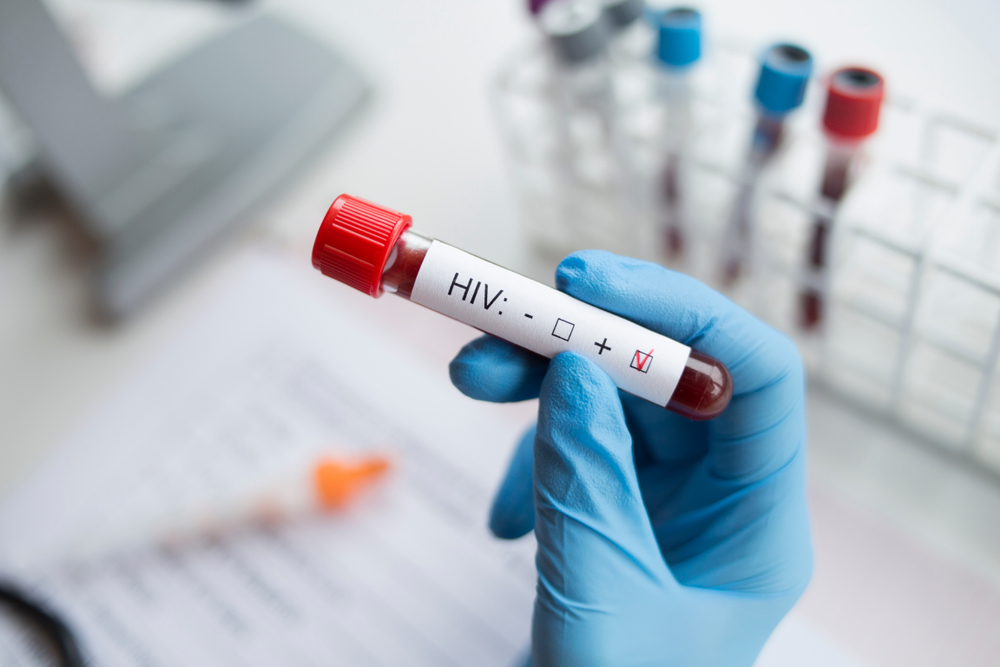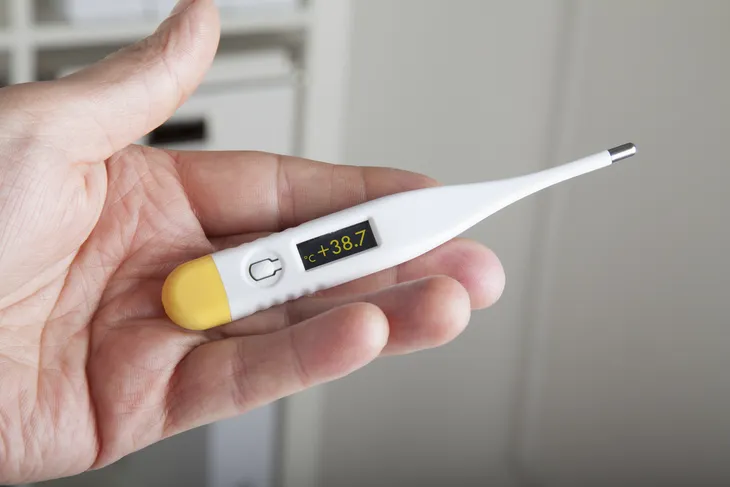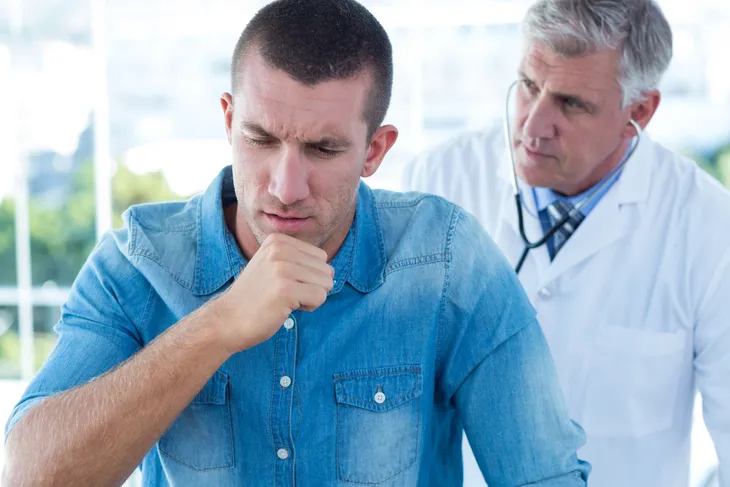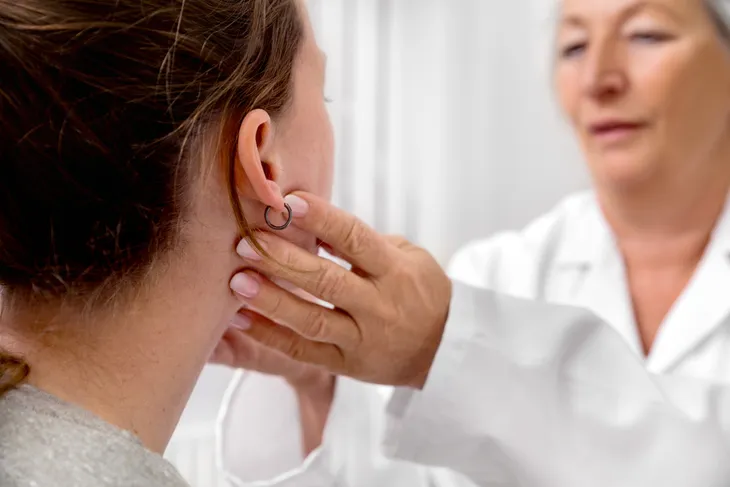Human immunodeficiency virus (HIV) is a devastating illness that affects over 1 million Americans. HIV may develop into acquired immunodeficiency syndrome (AIDS). The symptoms of HIV are varied, and many people do not know they are infected until years after they have acquired it. HIV is spread through bodily fluids. The virus can pass through blood, semen, pre-ejaculate, and vaginal fluid. It may also be spread to children through breast milk.
There is currently no cure for HIV, but scientists around the world are testing hopeful possibilities. To minimize your chances of contracting HIV, avoid blood to blood contact and practice safe sex by using condoms and having your partners tested for HIV.
If you are worried about your risk of infection, get tested by a healthcare professional. HIV testing is quick, simple, and accurate.
Thirteen signs and symptoms that you may have HIV are…
Fever
If you have practiced unprotected sex, watch out for fevers as a symptom of HIV. Early after being infected with HIV, you may experience flu-like symptoms. This can include a low-grade fever that does not respond to medication. You may experience night sweats as a response to the fever. The fever is an inflammatory reaction to the virus entering your bloodstream.
Sore Throat
Sore throat may be an early indicator of HIV infection. This may be an early symptom as the body reacts to the viral infection. It can also occur later in the disease as the infected individuals immune system becomes compromised. Sore throat may be caused by thrush in the mouth or esophagus and ulcers. Chronic throat problems should be checked out by your family doctor.
Body Pain
Sore muscles and joint pain are common symptoms of HIV infection that occur in the early flu-like phase. This can be caused by the swollen lymph nodes or from rheumatic illnesses. Rheumatic disease affects the muscles and joints of the body, causing inflammation. This disease can lead to arthritis, fibromyalgia, and vasculitis. Some HIV medications can also cause these symptoms.
Cough
A dry, persistent cough can be a long-term symptom of HIV infection. This symptom is not typically cured with medications, such as antibiotics and cough suppressants. Coughing may be an early symptom as the body reacts to the virus. It is also a long-term symptom caused by the damaged immune system. The cough may develop into pneumonia, which can be a serious symptom with dangerous side effects.
Swollen Lymph Nodes
Swollen lymph nodes may be a sign of HIV infection; 67-percent of HIV-positive individuals may experience some sort of lymph node swelling. This commonly occurs in the neck, armpits, and groin regions. Lymph nodes are distributed throughout the body, so any abnormal swelling could be a symptom. Lymph nodes swell as the immune system is activated and the body fights off infection.
Headaches
One of the first symptoms of the flu-related symptoms of HIV is an unrelenting headache. The headaches may develop into chronic debilitating migraines. Migraines become chronic after affecting a person for 15 or more days per month; 50-percent of people infected with HIV will experience headaches as a symptom, while 27-percent of those infected with HIV will experience chronic migraines. This is compared to the general population, where only 2-percent of people suffer from chronic migraines.
Weight Loss
Weight loss in HIV infected individuals is common through the progression of the disease. When first infected, the flu-like symptoms can cause nausea, diarrhea, and vomiting. This can cause a temporary weight loss. As the illness progresses, weight loss can be caused by a condition called “AIDS wasting.”
The U.S. Department of Health and Human Services categorize a person as having AIDS wasting when they have lost 10-percent or more of their body weight, and have experienced related weight loss symptoms for a period greater than 30 days.
Yeast Infection
As HIV develops, the infected person’s immune system becomes compromised. One of the starting symptoms of a failing immune system is bodily infections. Yeast infections are very common, and they affect more than just women. The cause of this infection is a fungus called Candida. It can affect the body in different ways, such as vaginal yeast infections, thrush, intestinal infections, and more. Getting rid of these infections may prove futile until HIV medication is taken on a regular basis.
Fatigue
Fatigue associated with HIV may be the most under-reported symptom. Many people suffer from chronic fatigue but do not realize it is a medical condition. Chronic fatigue is tiredness that cannot be alleviated with rest. Fatigue is usually the first reported of the flu-like symptoms that accompany the early stages of HIV. Once this phase is complete, fatigue may not appear until AIDS develops.
Skin Rash
Skin rash is one of the most common symptoms of HIV. Called the “HIV rash”, this symptom can be seen in approximately 85-percent of cases. The rash may develop into blisters in the warm moist areas of the body, including genitals and facial regions. Most rashes develop on the trunk of the body. The rash appears as red bumps that may itch and peel.
Night Sweats
As the HIV infection develops in the body, flu-like symptoms can appear. One of the most annoying and notable symptoms is night sweats. You may go to bed at a good temperature, but through the night, you may experience a wide range of body temperatures, going from very cold to very hot quite quickly. The physical response of the body is to sweat excessively to regulate the temperature. The person may wake up soaking wet and have to change their clothing and sheets.
Cold Sores
Cold sores can be a symptom of HIV. Cold sores are caused by the herpes simplex virus. It can occur as genital, rectal, or oral herpes. Anyone can be infected with herpes, regardless of their HIV status. Those who are infected with HIV and have cold sores may suffer from recurrent outbreaks of the herpes virus.
None
The most dangerous symptom of HIV is having none at all. Many of those infected do not know they are. This can be particularly dangerous as the person may continue to have unprotected sex, potentially spreading the disease. In 2001, it is estimated that less than 1-percent of the population has been tested for HIV. In South Africa, it is estimated that over 5 million people are infected. If you think you are at risk for HIV, get tested right away.
